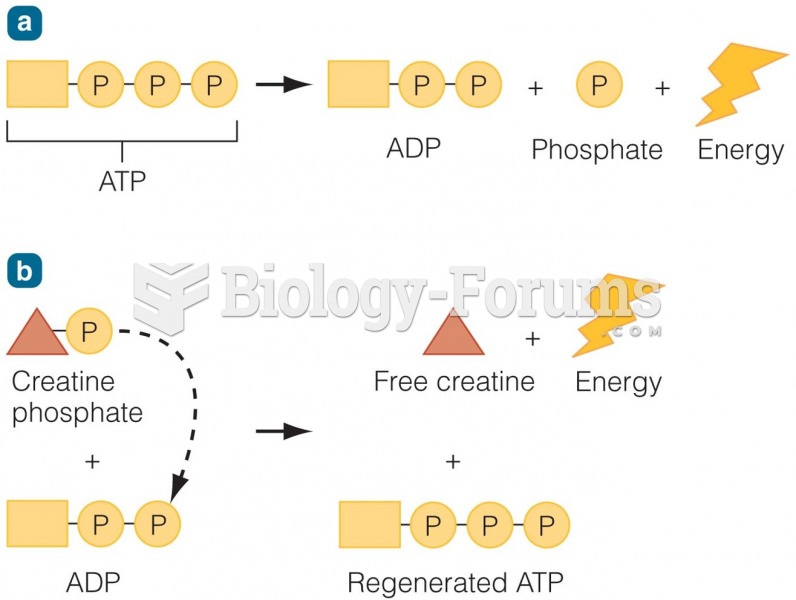|
|
|
Illness; diuretics; laxative abuse; hot weather; exercise; sweating; caffeine; alcoholic beverages; starvation diets; inadequate carbohydrate consumption; and diets high in protein, salt, or fiber can cause people to become dehydrated.
By definition, when a medication is administered intravenously, its bioavailability is 100%.
More than nineteen million Americans carry the factor V gene that causes blood clots, pulmonary embolism, and heart disease.
Vital signs (blood pressure, temperature, pulse rate, respiration rate) should be taken before any drug administration. Patients should be informed not to use tobacco or caffeine at least 30 minutes before their appointment.
Adult head lice are gray, about ? inch long, and often have a tiny dot on their backs. A female can lay between 50 and 150 eggs within the several weeks that she is alive. They feed on human blood.
 Killer whales, like this one spotted near Alaska, commonly breach, often lifting their entire bodies
Killer whales, like this one spotted near Alaska, commonly breach, often lifting their entire bodies
 In one-male group species, extra males typically reside in all-male “bachelor” groups. These are Han
In one-male group species, extra males typically reside in all-male “bachelor” groups. These are Han





